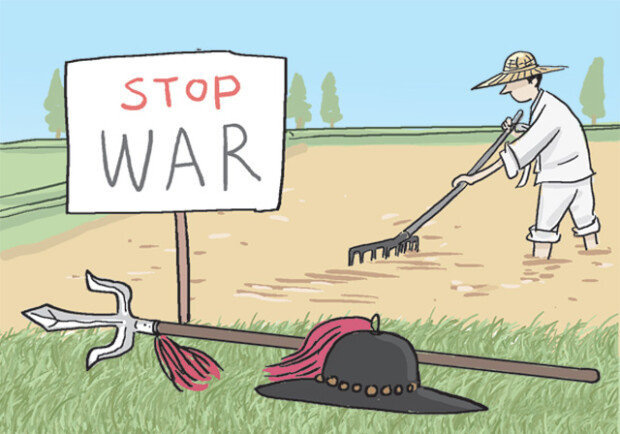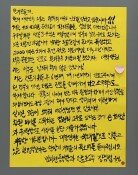May, the month when even wars stop
May, the month when even wars stop
Posted May. 19, 2020 07:49,
Updated May. 19, 2020 07:49

May is the month of verdure. There are many signs of spring – the warmth felt on the earth still cool at the end of March and cherry blossoms bright under the moonlight. Homer Hulbert who visited Joseon toward the end of the Korean Empire history said Koreans like flowers that blossom before leaves appear, such as forsythia and cherry blossoms. It might be because everybody looks forward to early-blossoming flowers and the arrival of spring after enduring long winters. However, I personally prefer the refreshing colors of leaves after a spring rain.
Although there aren’t exact statistical records, May must have been the month with the least worry about wars from the perspective of war history. Nomadic tribes from the north launched raids during the harvest season. A phrase referring to fall, the “season of the high sky and plump horses,” originally meant that northern nomadic tribes’ attacks begin in fall. They tended to engage in long-distance military expeditions in winter before returning in January to take care of their businesses back home from February of the lunar calendar. Meanwhile, Japanese raiders did not discriminate seasons with several recorded cases of their attacks in April and May of the lunar calendar according to the Veritable Records of the Joseon Dynasty. However, the raiders were most active from November to February or from July to August, partially because of their targeting of the post-harvest season and partially due to the impact of seasonal winds.
Countries with abundant standing armies and national wealth were not affected by such seasonal factors. There used to be many countries like that in ancient times, but more countries became susceptible to wars at any time in the modern age. The increase of national wealth and the development of science and technology raised the potential for the happiness of humanity, but they also increased the risk of sudden wars, which is a paradox of civilization. In May 1950, Japan was the most comfortable army post for the U.S. soldiers. They spent more time ironing their pants than training, having no idea that they would be thrown into a war with scorching weather just one month later. The best way to prevent wars is to remove the reasons and expectations that wars will never happen.
Headline News
- Med professors announce intention to leave hospitals starting Thursday
- Bridge honoring Sgt. Moon Jae-sik unveiled in Pennsylvania
- Chief of Staff Chung tells presidential secretaries to stay away from politics
- US FTC bans noncompete agreements
- N. Korea launches cyberattacks on S. Korea's defense companies







